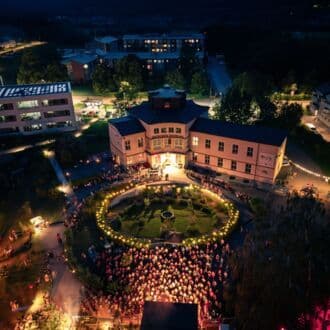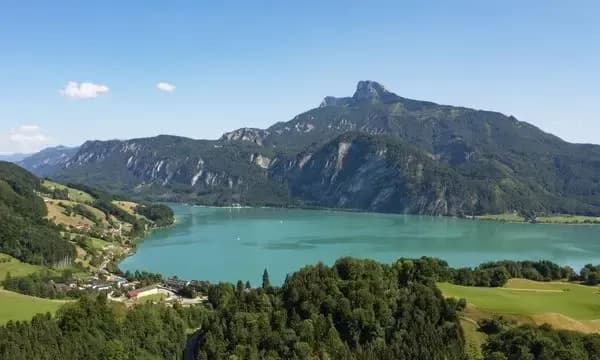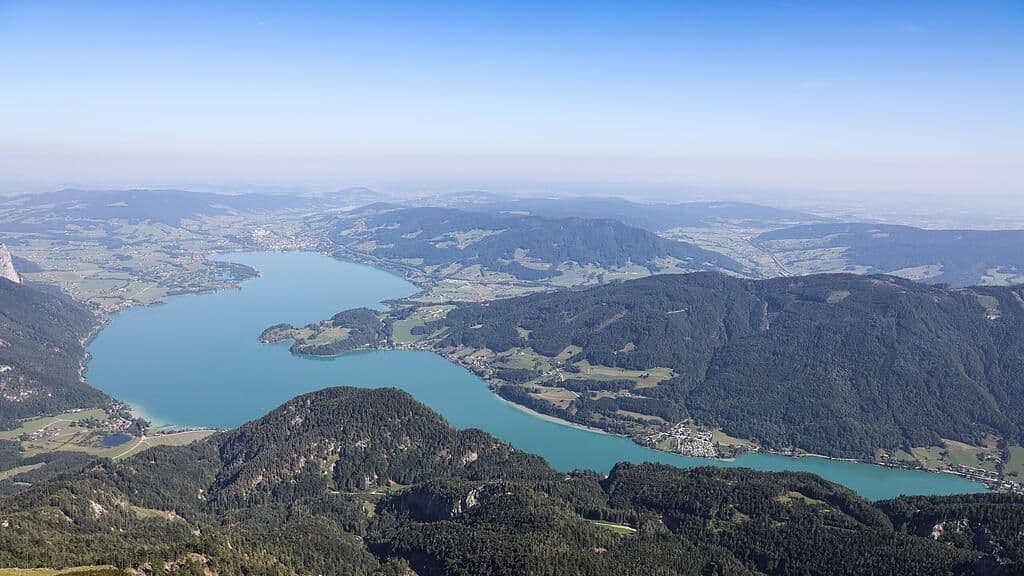Beyond the Lease: Mondsee's Reckoning with Ownership and Access
Mondsee's abrupt lease terminations spark debate on private lake ownership, public access, and community futures. Explore the unseen impacts and what's next for this iconic Austrian lake.
The Unsettling Announcement: Mondsee's Lease Shake-Up
The tranquil waters of Mondsee, a jewel in Austria's Salzkammergut region, have been stirred by a recent, profoundly unsettling announcement. On July 23, 2025, the lake's private owner delivered a shockwave across the community: all existing lease agreements, or "Pachtverträge," for access and utilization of the lake's shores are being terminated. This isn't just a bureaucratic formality; it's a decision poised to redefine the very relationship between the cherished natural landmark and the people who call its shores home, or those who visit seeking its beauty. These leases have long underpinned a delicate ecosystem of businesses – from lakeside restaurants and boat rental operators to swimming areas and recreational facilities – all of which depend on direct access to the water. The news has ignited a fervent debate, forcing everyone to confront the intricate, often uncomfortable, reality of private ownership over what many consider a public resource. This move signals a significant shift, leaving businesses and residents scrambling to understand the implications of what comes next.
Private Domain, Public Pulse: Navigating Lake Ownership in Austria
To fully grasp the magnitude of the Mondsee situation, one must understand the unique landscape of lake ownership in Austria. Unlike many countries where large natural bodies of water are typically state-owned and publicly accessible, a significant number of Austria's most iconic lakes, including Mondsee, remain in private hands. This historical legacy often traces back centuries to aristocratic landholdings, where entire lakes were part of vast private estates. While the public generally enjoys a right to "free access" to natural landscapes, this often doesn't extend to the actual water bodies or their immediate shorelines if privately owned. This creates an inherent tension: a public accustomed to enjoying these natural treasures for recreation, tourism, and livelihood, confronted by the legal reality of private property rights. The Mondsee case vividly highlights this delicate balance, pushing the long-standing, often unspoken, understanding between private domain and public pulse to its breaking point.

The Ripple Effect: Economic and Social Impacts on a Lakeside Community
The termination of Mondsee's Pachtverträge sends an undeniable ripple effect far beyond the immediate leaseholders. Economically, the impact could be devastating for a community deeply intertwined with lake tourism. Businesses like hotels, guesthouses, and restaurants, which thrive on visitors drawn to the lake's recreational offerings, face an uncertain future if public access points and services disappear. Local employment, from tourism staff to boat mechanics, is directly threatened. Socially, the consequences are equally profound. For generations, Mondsee has been a vibrant hub for locals, a place for swimming, sailing, and community gatherings. Restricting access could erode this social fabric, transforming a shared natural space into an exclusive preserve. The very identity of the lakeside community, built around its symbiotic relationship with the water, stands on the brink of significant alteration, raising questions about who truly benefits from and belongs to such a cherished natural asset.
Looking Ahead: Forging Mondsee's Future Amidst Uncertainty
As Mondsee grapples with this unprecedented challenge, the path forward is shrouded in uncertainty, yet several avenues for resolution are emerging. Stakeholders, including affected businesses, local authorities, and community groups, are likely to explore legal challenges to the terminations, while simultaneously pushing for negotiations with the lake owner. The broader public debate could also prompt governmental intervention, perhaps through legislative measures aimed at safeguarding public access to natural resources, or even considering compulsory purchase options, albeit politically complex and costly. This situation at Mondsee isn't an isolated incident; it serves as a critical test case for how Austria navigates the evolving concept of public access versus private property rights over its stunning natural landscapes. The outcome here could set a powerful precedent, shaping the future of other privately owned lakes across the country and determining whether cherished natural spaces remain accessible for all, or become increasingly privatized.
Related Articles

The Mondsee Maelstrom: Navigating the Future of Private Lake Access

The Mondsee Maelstrom: Navigating the Future of Private Lake Access

Mondsee's Legal Depths: Unpacking the Future of a Cherished Alpine Lake

Mondsee's Legal Depths: Unpacking the Future of a Cherished Alpine Lake

Siófók's Summer of Shadow: Navigating the Delicate Balance of Protected Pests and Thriving Tourism

Siófók's Summer of Shadow: Navigating the Delicate Balance of Protected Pests and Thriving Tourism

The Battle for Transparency at 'Pusztaversailles': Peering Over the Walls of Hatvanpuszta
